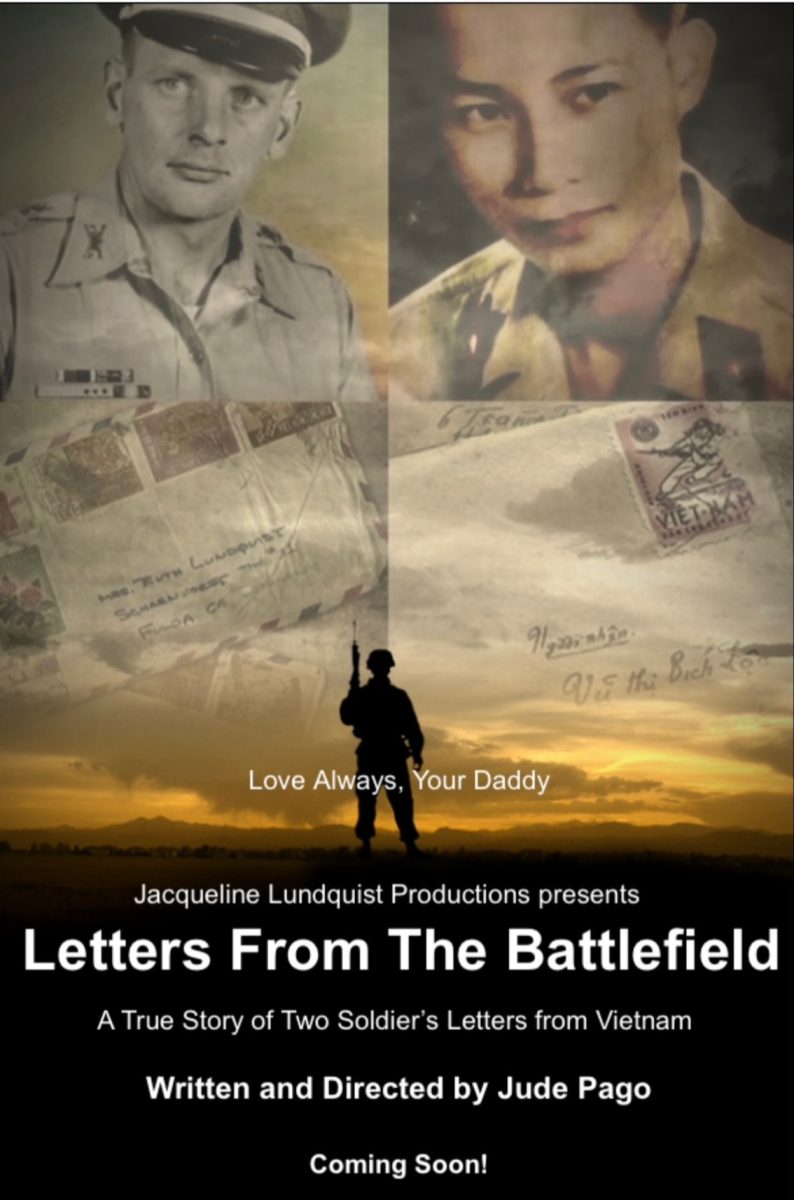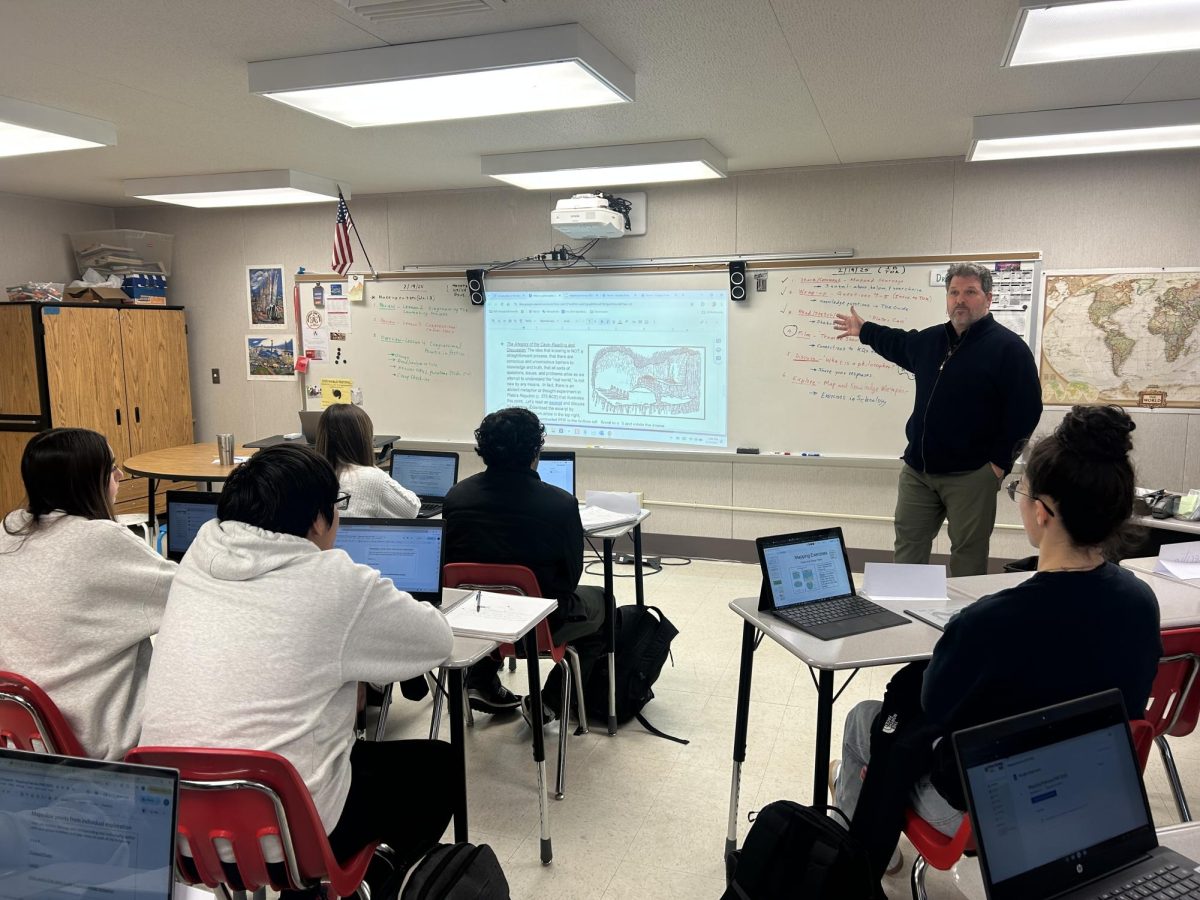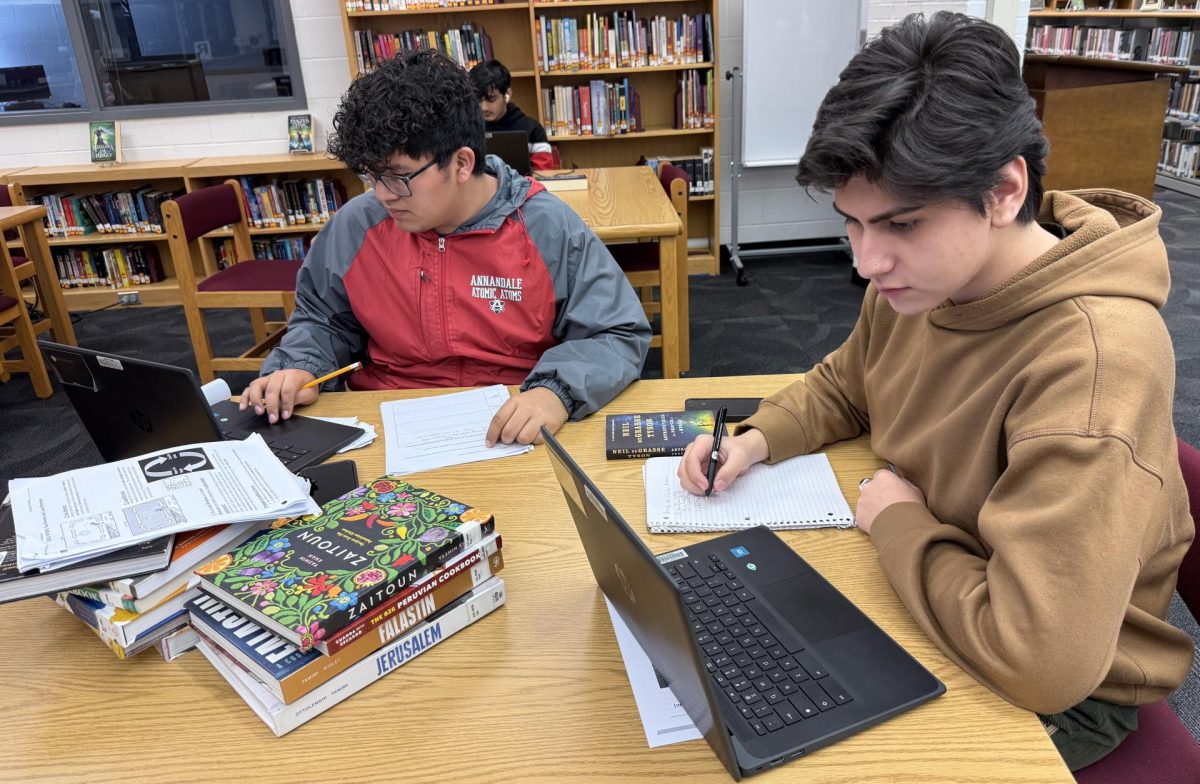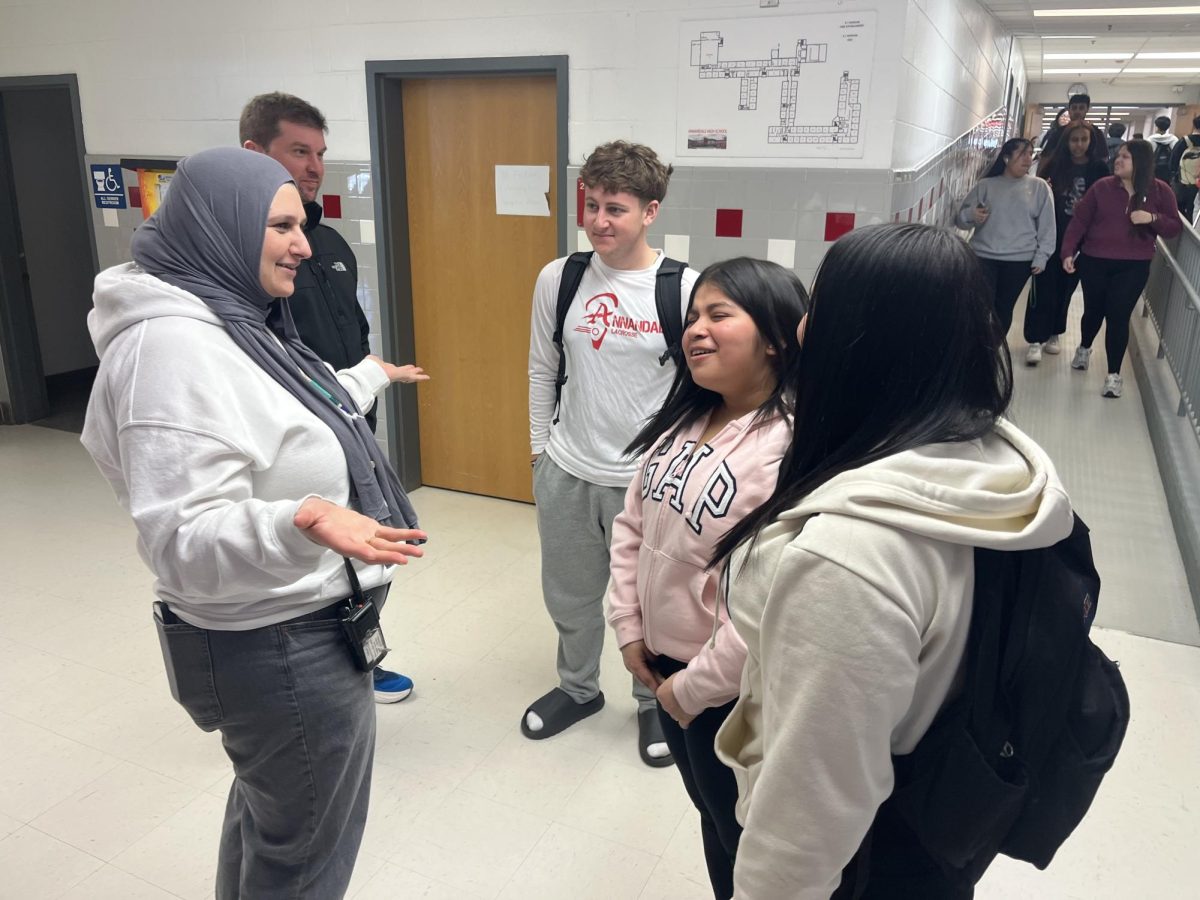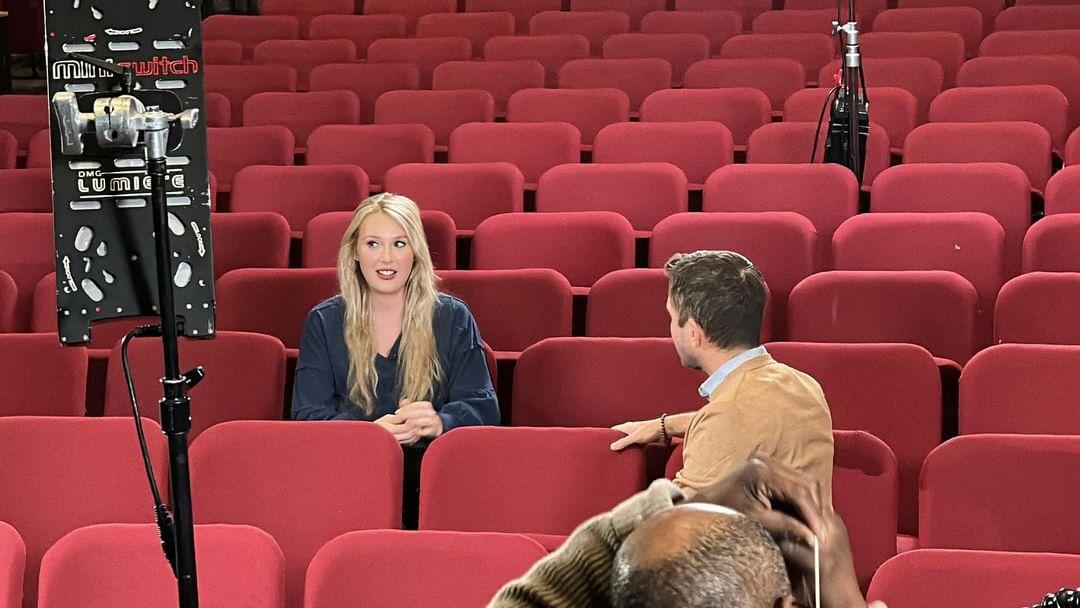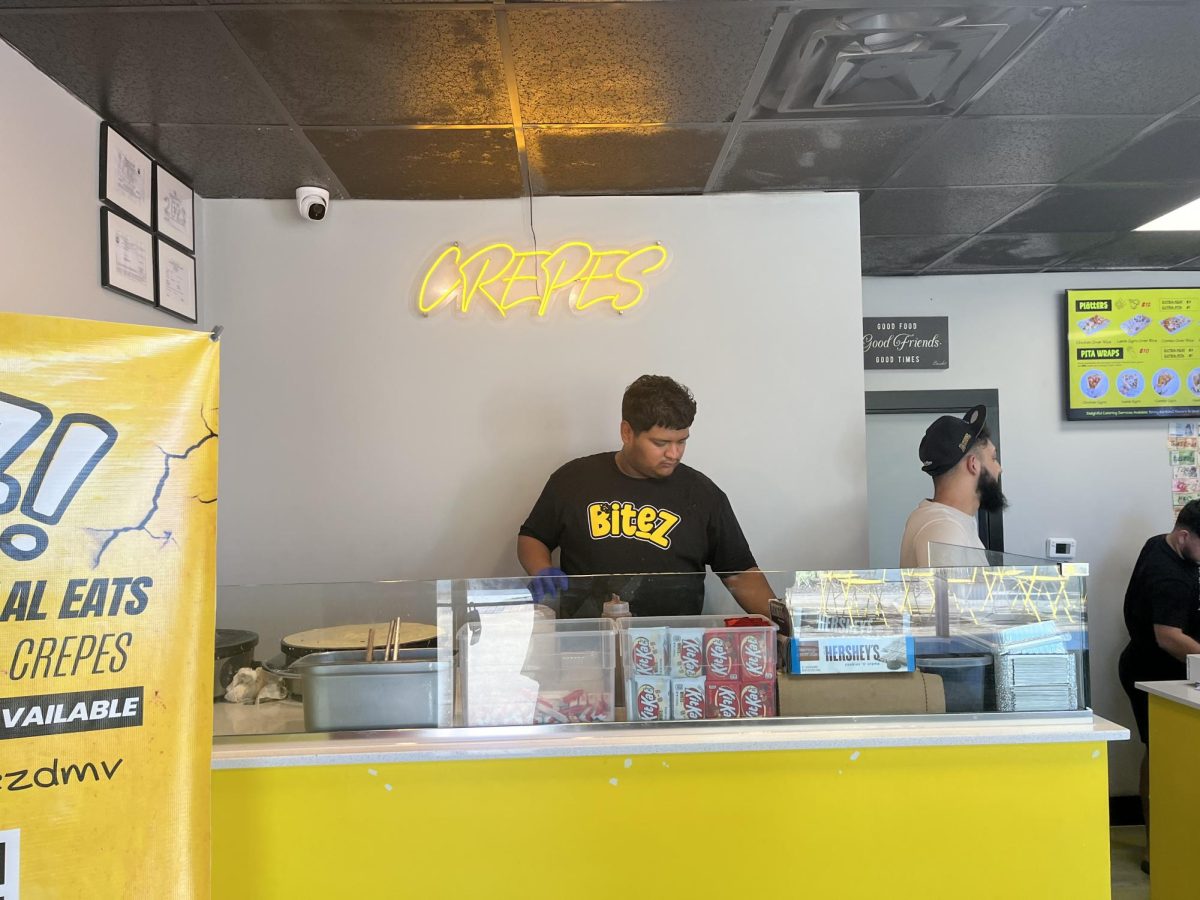Colorful balloons deck the walls of room 90 and baskets filled with student necessities like hand sanitizer, paper, chapstick, lotion and hair scrunchies line the walls. This hidden gem is located in the prime location for the average student–in between the senior courtyard and the cafeteria.
The Work Awareness and Transition (WAT) store is open five days a week with official hours during every single lunch, but customers are welcomed at any time during the day.
With prices like $1.25 for chapstick, lotion and hand sanitizer, $0.30 for pens and mechanical pencils and two hair scrunchies for $0.25, the WAT store promises affordable necessities for the average student.
“The prices are competitive in terms of local grocery stores,” Special Education teacher Donna Seabrook said.
Despite being the only student store operating during the school day, the WAT store is unique in other ways. Several students intern from the special education department of AHS by greeting customers and servicing the store.
WAT is bigger than just AHS; it’s a program that is found in most schools in FCPS.
“There are several focuses in WAT,” Donna Seabrook said. “We focus on personal awareness-what their strengths are, what they like to do, things they’re good at doing, so they become aware of these [things] through WAT.”
Students participating in the program have access to countless work sites or internships in the community, including several local restaurants and community businesses.
“We take work in for Domino’s, for Parliament Dry Cleaners, where my interns put on trouser guards on the hangers,” Seabrook explained. “Our kids are also at Magill’s, and they do things like bussing tables, which is another great skill they can take with them post secondary. They’re at Marshall’s department store [and] we’re at Silverados.”
These partnerships are made possible through the WAT Employment Transition Representative (ETR). AHS’ ETR, Sue Eaton, who has worked with AHS for several years, and the new representative, Thomas Lyles, manage to get the work sites for AHS WAT students to learn skills that will help them after high school.
“[The WAT store] teaches the students money exchange and organization, the difference between class and work and how to act in class and in work,” instructional assistant Jewad Abdulhadi said.
However beneficial the WAT store may be for both the students and the student body, it still remains largely unknown despite the best efforts of the special education department.
“I think it’s a good cause,” junior Vrishti Phadudumdeo said. “It gives special education students, or any students, experience outside of high school. I would go and buy stuff at the store, but I’ve never heard of it before.”




